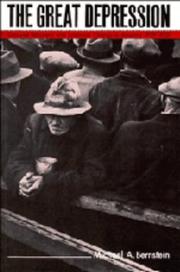| Listing 1 - 2 of 2 |
Sort by
|
Book
ISBN: 1536140279 9781536140279 9781536140262 1536140260 Year: 2018 Publisher: New York
Abstract | Keywords | Export | Availability | Bookmark
 Loading...
Loading...Choose an application
- Reference Manager
- EndNote
- RefWorks (Direct export to RefWorks)
"Keynesian Policies - A New Deal in the European Narrative: Employment, Equality and Sustainability has its intellectual roots in the Great Depression of the 1930s followed by the appearance of Keynesianism. The founder of Keynesian macroeconomics was the British economist John Maynard Keynes (1883-1946). His macroeconomics became a worldwide political economic approach, and made the social democratic welfare state model that has been coming up in Europe. In the US, the reform of Roosevelt's New Deal came out of Keynesian thinking as a huge nation-building project. Keynesian economics served as the standard economic model in developed nations, creating the post-war economic expansion (1945-1973), though it lost some influence following the oil shock and resulting stagflation of the 1970s. The advent of the financial crisis of 2007-08 caused a resurgence in Keynesian thought, which continues as new Keynesian economics. The authors provide extensive analyses and examples of earlier and contemporary shifting pressure from external environments, showing how the Keynesianism ideology has been modified over time."--
Keynesian economics --- Depressions --- New Deal, 1933-1939 --- History. --- 1929-1939 --- Europe.

ISBN: 0521340489 9780521340489 0521379857 9780521379854 9780511572333 0511572336 Year: 1987 Volume: *3 Publisher: Cambridge: Cambridge university press,
Abstract | Keywords | Export | Availability | Bookmark
 Loading...
Loading...Choose an application
- Reference Manager
- EndNote
- RefWorks (Direct export to RefWorks)
This 1988 book focuses on the real puzzle of 1930s America: why did the economy fail to recover from the downturn of 1929-33? The author presents a convincing case that there were important long-run tendencies within the economy that are crucial to understanding this failure. From a wealth of detail about individual industries emerges a bold thesis about the interwar economy that emphasizes both cyclical and secular factors and shows that some sectors of the economy demonstrated technological dynamism during the 1930s. His approach cuts across the more traditional explanations which have been for the most part tests of economic theories rather than historical explanations of the depression.
History of North America --- anno 1920-1929 --- Depressions --- Crises économiques --- United States --- Etats-Unis --- Economic conditions --- Conditions économiques --- US / United States of America - USA - Verenigde Staten - Etats Unis --- 331.100 --- 331.101 --- Economische geschiedenis: algemeenheden. --- Geschiedenis van de economische cyclussen. --- Economie en handel --- Verenigde Staten --- geschiedenis --- 1929-1939 --- 1929-1939. --- Geschiedenis --- Crises économiques --- Conditions économiques --- 1929 --- 1918-1945 --- Economische geschiedenis: algemeenheden --- Geschiedenis van de economische cyclussen --- Crise économique. --- Depressions. --- Economic history. --- Histoire économique. --- Weltwirtschaftskrise (1929-1932). --- 1918-1945. --- Geschichte 1929-1939. --- Etats-Unis d'Amérique. --- USA. --- United States. --- Arts and Humanities --- History --- Depressions - 1929 - United States --- United States - Economic conditions - 1918-1945
| Listing 1 - 2 of 2 |
Sort by
|

 Search
Search Feedback
Feedback About UniCat
About UniCat  Help
Help News
News